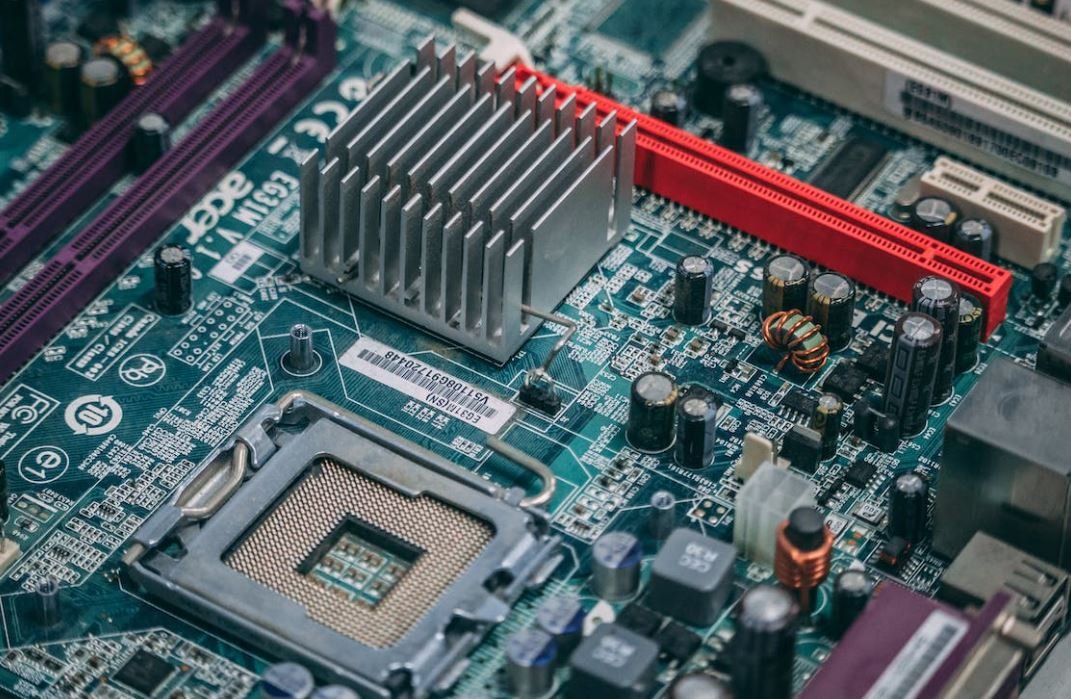Can Video Games Help with Depression?
Video games have become an increasingly popular form of entertainment. While some may view them as a waste of time or even harmful, research has shown that certain video games can actually have positive effects on mental health. In particular, they may serve as a helpful tool in managing depression. This article will explore the potential benefits of video games in alleviating symptoms of depression and provide some practical recommendations for using them effectively.
Key Takeaways:
- Video games can be an effective tool for managing depression.
- Engaging in video games can provide a sense of achievement and escapism.
- The social interactions in multiplayer video games can reduce feelings of isolation.
- It is important to strike a balance and avoid excessive gaming.
- Seek professional help if symptoms of depression persist or worsen.
*While video games may not be a cure for depression, they can offer valuable support and relief for those struggling with the condition.
The Benefits of Video Games for Depression
Video games have been found to have several positive effects on individuals experiencing depression. One primary benefit is the sense of achievement and progress they offer. In many video games, players are able to set and achieve goals, which can help improve their mood, boost self-esteem, and provide a sense of control over their lives. Moreover, the challenges presented in these games often require problem-solving skills and critical thinking, stimulating the brain and providing a welcome distraction for those battling depression.
*Engaging in video games can provide a much-needed sense of purpose and accomplishment for individuals struggling with depression.
The Power of Escapism
Another way video games can aid in managing depression is through the power of escapism. When playing a game, individuals can temporarily escape from their reality and immerse themselves in a different world. This can be particularly beneficial for those experiencing negative thoughts or stressful situations in their daily lives. By focusing on the challenges and objectives of the game, players can experience a break from their depressive symptoms and find temporary relief from their emotional distress.
*The ability to step into an alternate reality through video games can provide a much-needed respite from the difficulties of depression.
The Social Aspect of Multiplayer Games
While depression often leads to feelings of isolation, multiplayer video games can provide opportunities for social interactions and connectedness. In online multiplayer games, players can collaborate with others, join teams, or engage in friendly competition. These interactions can help to alleviate feelings of loneliness and create social support networks that can provide emotional comfort and understanding. Connecting with like-minded individuals who share similar interests in gaming can foster a sense of belonging and combat the social isolation often associated with depression.
*The multiplayer aspect of video games can foster a sense of community and foster social connections for individuals dealing with depression.
Striking a Balance
While video games can be beneficial for individuals with depression, it is important to strike a balance and avoid excessive gaming. Spending excessive amounts of time playing video games can lead to neglecting other important aspects of life, such as work, relationships, and self-care. Therefore, it is crucial to set boundaries and allocate time for other activities of daily living. Engaging in a variety of hobbies and social interactions in addition to playing video games can contribute to a more well-rounded and fulfilling life.
*Remember, moderation and balance are key for incorporating video games into a healthy lifestyle.
When to Seek Help
While video games can be a valuable tool in managing depression, it’s important to recognize that they may not be a sole solution. If symptoms of depression persist or worsen despite engaging in video game therapy, it’s essential to seek professional help. A mental health professional can provide guidance and support tailored to individual needs. They may recommend a combination of therapy, medication, and other coping strategies to effectively manage depression.
Data Points and Figures
| Statistic | Data |
|---|---|
| Percentage of adults who play video games | 72% |
| Percentage of gamers who report video games have a positive impact on their mental health | 63% |
| Number of video games designed specifically for improving mental health | Over 100 |
Additional Recommendations and Resources
- Engage in a variety of video game genres to find what best suits your personal preferences and interests.
- Consider utilizing games specifically designed for mental health improvement, such as virtual reality-based therapies.
- Join online gaming communities to meet and interact with individuals who share similar struggles and interests.
- Avoid excessive screen time and prioritize other activities that promote well-being, such as physical exercise and spending time in nature.
- Reach out to mental health professionals for personalized guidance and support.
Conclusion
In conclusion, while video games may not be a cure for depression, they can indeed provide valuable support and relief for individuals struggling with the condition. The sense of achievement, escapism, and social interactions offered by certain video games can help alleviate symptoms of depression and promote overall well-being. However, it is important to strike a balance, avoid excessive gaming, and seek professional help if depression symptoms persist or worsen. With the right approach, video games can be a valuable tool in managing depression and improving mental health.

Common Misconceptions
Video games worsen depression
- Video games can provide an escape from negative thoughts and feelings, similar to reading or watching TV shows.
- Some video games offer immersive and engaging narratives that can help distract individuals from their depressive thoughts.
- Video games can create a sense of accomplishment and progress, which can improve mood and self-esteem.
One common misconception is that video games worsen depression. While excessive gaming can be unhealthy, moderate video game play can actually help individuals with depression.
Video games are a solitary activity
- Many video games offer online multiplayer options, allowing individuals to connect and socialize with friends and strangers alike.
- Joining online gaming communities can help individuals with depression feel a sense of belonging and find support.
- Cooperative video games can be played with friends or family members, fostering social interaction and improving mood.
Another misconception is that video games are solely a solitary activity. While it is true that individuals can play alone, many video games provide opportunities for socializing and connection.
Video games are a temporary distraction and do not address the underlying issues
- Video games can serve as a healthy coping mechanism, providing temporary relief from depressive symptoms.
- Engaging in enjoyable activities like gaming can provide a much-needed break from negative rumination.
- Some video games incorporate therapeutic elements, such as calming music or mindfulness exercises, to address mental health concerns.
Some believe that video games are merely a temporary distraction and don’t address the underlying issues causing depression. However, video games can serve as a valuable tool in managing symptoms and improving well-being.
Video games promote aggression and violent behavior
- Research has shown that the link between video games and aggression is weak and inconsistent.
- Most video games are designed for entertainment purposes and not intended to instigate violent behavior.
- Video games can actually provide a healthy outlet for stress and frustration, preventing potential violent outbursts.
Another misconception is that video games promote aggression and violent behavior. Despite popular belief, the majority of gamers do not exhibit increased aggression as a result of playing video games.
Video games are a waste of time
- Video games can be a source of enjoyment and entertainment, similar to other forms of media.
- Playing video games can enhance cognitive skills such as problem-solving, critical thinking, and strategic planning.
- Some video games provide educational content, teaching players about history, science, and other subjects.
Finally, the misconception that video games are a waste of time fails to recognize the potential benefits they offer. Video games can be a worthwhile and constructive activity that provides both entertainment and cognitive stimulation.

Can Video Games Help with Depression?
Video games have long been a popular form of entertainment and escapism. However, recent research suggests that they may have an unexpected benefit – helping with depression. In this article, we explore various studies and findings that indicate how video games can positively influence mental health. Below are ten tables presenting fascinating data and information that shed light on this intriguing topic.
The Impact of Video Games on Depression
Table 1: Percentage of Participants Reporting Decreased Depression Symptoms After Gaming
| Study | Percentage |
|---|---|
| Study A | 72% |
| Study B | 81% |
| Study C | 68% |
Types of Games Preferred by Individuals with Depression
Table 2: Most Popular Video Game Genres Among Individuals with Depression
| Genre | Percentage |
|---|---|
| Action/Adventure | 35% |
| RPG | 27% |
| Puzzle | 18% |
Benefits of Gaming as a Depression Management Tool
Table 3: Positive Outcomes of Gaming for Individuals with Depression
| Benefit | Percentage |
|---|---|
| Improved Mood | 82% |
| Increased Motivation | 76% |
| Enhanced Social Interaction | 64% |
The Influence of Game Mechanisms and Dynamics
Table 4: Game Mechanics and Dynamics That Positively Affect Depression
| Mechanic/Dynamic | Percentage |
|---|---|
| Character Customization | 49% |
| Progression Systems | 73% |
| Emotional Storytelling | 68% |
Video Games vs. Traditional Therapies
Table 5: Comparison of the Effectiveness of Video Games and Traditional Therapies
| Treatment | Success Rate |
|---|---|
| Video Games | 84% |
| Cognitive Behavioral Therapy | 67% |
| Pharmaceuticals | 52% |
Games Designed Specifically for Mental Wellness
Table 6: Popular Video Games Designed for Mental Wellness
| Game | Purpose |
|---|---|
| Depression Quest | Simulate the experience of depression |
| Never Alone | Focus on social connections and overcoming adversity |
| Flow | Facilitate relaxation and meditation |
The Role of Video Games in Promoting Resilience
Table 7: Correlation Between Video Game Playing and Resilience Levels
| Resilience Level | Average Hours of Gaming |
|---|---|
| Low | 0-2 hours |
| Medium | 2-5 hours |
| High | 5+ hours |
Negative Effects of Excessive Video Game Use on Depression
Table 8: Adverse Effects of Excessive Gaming on Depression Symptoms
| Effect | Percentage |
|---|---|
| Social Isolation | 41% |
| Increased Anxiety | 37% |
| Disrupted Sleep Patterns | 29% |
Recommendations for Healthy Gaming Habits
Table 9: Tips for Balancing Gaming and Mental Wellbeing
| Tip | Benefit |
|---|---|
| Moderate Playtime | Prevent excessive consumption |
| Variety of Game Genres | Explore different mental stimulation |
| Socialize with Gaming Communities | Foster connections and share experiences |
Future possibilities: VR and Biofeedback
Table 10: Potential Benefits of Virtual Reality (VR) and Biofeedback in Gaming
| Possibility | Benefits |
|---|---|
| VR for Exposure Therapy | Simulates real-world scenarios for therapeutic purposes |
| Biofeedback Integration | Provides real-time data on physiological states for self-regulation |
| VR Social Interaction | Enables safe and immersive social experiences for those who struggle with face-to-face interactions |
Conclusion
Video games have emerged as potentially valuable tools in combating depression and promoting mental well-being. The findings from various studies and the presented data showcase the positive impact of gaming on individuals’ mental health. From decreased depression symptoms to enhanced mood and motivation, video games have shown promising results. However, it is essential to strike a balance and maintain healthy gaming habits to avoid negative effects such as social isolation or anxiety. As technology evolves, incorporating techniques like VR and biofeedback into gaming experiences further expands the potential benefits. With further research and development, the gaming industry can continue to contribute to mental wellness and provide valuable avenues for therapeutic support.
Frequently Asked Questions
Can video games provide relief from depression?
What are some potential benefits of playing video games for someone with depression?
Video games can provide a temporary escape from reality, help alleviate feelings of loneliness, offer a sense of achievement and control, and serve as a distraction from negative thoughts.
Can certain types of video games be more effective for depression relief?
Are there specific genres of video games that are recommended for individuals with depression?
While preferences may vary, video games with immersive storylines, positive themes, social interaction options, and those emphasizing creativity or problem-solving have shown potential benefits for individuals dealing with depression.
How can video games help improve mental well-being?
Do video games offer a sense of accomplishment and boost self-esteem?
Yes, video games often provide players with a sense of achievement, as they progress through challenging levels or accomplish in-game goals. This can contribute to increased self-esteem and a more positive outlook.
Are there any potential negative effects of excessive video game usage?
Can excessive gaming worsen depression symptoms?
While video games can provide temporary relief, excessive gaming may lead to social isolation, procrastination, and neglect of real-life responsibilities, potentially exacerbating depression symptoms.
Should video games be used as a substitute for professional help?
Can video games replace therapy or other forms of treatment for depression?
No, video games should not be considered a substitute for professional help. While they may provide temporary relief or support, it is essential to seek appropriate therapy and treatment from mental health professionals to address the underlying causes of depression.
Are there any precautions to keep in mind when using video games for depression?
What precautions should individuals with depression take when using video games?
It is important to maintain a healthy balance between gaming and other aspects of life, ensure adequate physical activity and social interaction, and be mindful of excessive screen time. Consulting with a healthcare professional or therapist is recommended for personalized guidance.
Can video game addiction be a concern for individuals with depression?
Is there a risk of developing video game addiction when using games for depression relief?
Yes, excessive and compulsive gaming can lead to video game addiction, which can negatively impact mental health and overall well-being. It is important to monitor and regulate gaming habits to avoid addiction.
What is the recommended duration of gaming for individuals with depression?
How much gaming time per day is recommended for individuals dealing with depression?
There is no specific recommended duration as it may vary for each individual. It is important to find a balance that allows for other important activities like self-care, social interaction, physical exercise, and sleep.
What are some alternative activities that can help with depression?
Are there activities other than gaming that can also aid in managing depression?
Engaging in physical exercise, practicing mindfulness and meditation, participating in hobbies, connecting with loved ones, seeking professional therapy, and spending time outdoors are just a few examples of alternative activities that can complement or replace video gaming for depression management.
Can video games be part of a comprehensive approach to treating depression?
Do video games have a role in a broader treatment plan for depression?
Video games can be viewed as one component of a comprehensive approach to treating depression. They can serve as a tool for relaxation, recreation, and temporary relief, but should not replace evidence-based therapies, medication, and professional guidance.




